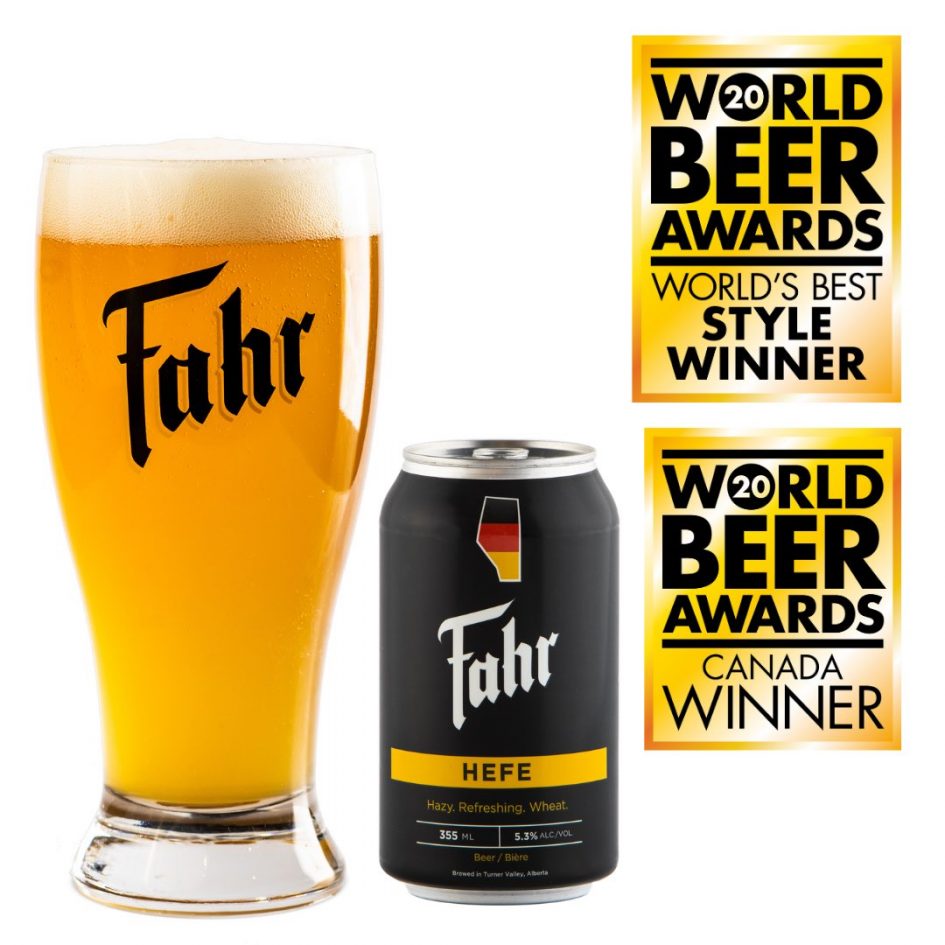The 2020 World Beer Awards were announced today and, in a bit of a surprise, Alberta’s Brauerei Fahr won Best Bavarian-Style Hefeweisse for its flagship Fahr Hefe. It is less shocking for those of us who have tried the Fahr Hefe as we know how well-designed it is. What is surprising is that it won over some of the classic and world famous German hefeweizens. This category has been dominated by German breweries over the years. So it is no small feat that a young upstart brewery in the foothills of Alberta scooped up the honours.
The World Beer Awards are a well-respected international beer competition. It is not particularly transparent in terms of number of entries and judging methods, but its list of judges includes highly skilled and well regarded beer judges from around the world, including Canada’s Stephen Beaumont. They picked winners (not medal winners, just a single selection) in 76 categories grouped into nine broad classes. You can see the full results here.
In all Canadian breweries picked up 8 category and 3 Best of Class awards, dominated by Unibroue (with 3 awards and a Best of Class) and other Quebec breweries, including Trou du Diable, and Brasseurs du Monde. Toronto’s Amsterdam Brewing scooped up Best Wood-Aged Beer and Best in Class in the Flavoured Beer grouping.
Unibroue’s classification is a bit complicated as it is owned by Sapporo of Japan through Sleeman Brewing. In a way it is not a Canadian brewery due to this ownership structure, but I think I speak for most beer fans when I say that the corporate owners have largely left Unibroue alone, and its quality has not been compromised, as their multiple awards attests.
I also note that most of the Canadian victories are in styles that generally Canada does not have a reputation for world-class versions: Hefeweizen, Witbier, Sour/Wild, Berliner Weisse, Saison, Wood-Aged and Belgian Abbey styles. This suggests maybe Canadian breweries have a better grasp on these challenging styles than we are given credit for. That is one of the advantages of awards like the World Beer Awards – it provides some opportunity to look at breweries and beer nations in a new light.
Obviously I don’t know how many Canadian breweries entered, or how well their entries fared in general. The decision to name only one beer per category does restrict a sense of the depth in the category, but that is the organizers’ decision. I believe the country winners (of which Fahr appears to have won four) will be announced soon, which will give us a better sense of the Canadian beer scene.
The eight winners is about average for how Canadian breweries have fared in the past few years. They usually win between 5 and 10 awards each year, which isn’t bad when you think about our population and the size of our craft brewing industry. Of course, it is possible we are over-represented in the entries. I note the small number of American breweries, for example, which suggest to me they may be less likely to enter this competition. But you gotta play if you want to win.
Fahr played and as a result they won. I am sure Jochen and his team are elated, as they should be.



Leave a Reply